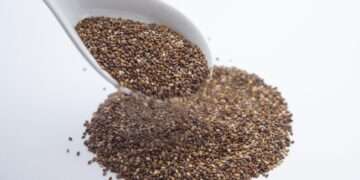Intermittent fasting has gained significant attention, not merely as a diet fad but as a scientifically validated approach to better health. Highlighted by leading institutions like Johns Hopkins Medicine, Mayo Clinic, and even Harvard Health, intermittent fasting has shown a range of benefits—from weight loss and improved metabolic rate to cellular repair and longevity. In fact, a recent survey indicated that 10% of U.S adults have tried intermittent fasting, which was the subject of over 50 peer-reviewed studies just in the year 2020.
As our understanding of nutrition and health evolves, intermittent fasting emerges as a powerful yet surprisingly simple tool. The principle behind it is not new; various cultures have practiced fasting for millennia. However, modern science is just beginning to uncover the multifaceted benefits that fasting offers, debunking many previously held misconceptions about meal timing and frequency. Whether you’re completely new to this concept or you’ve tried it before, this comprehensive guide aims to offer a deep yet accessible dive into intermittent fasting. We’ll explore the different methods you can adopt, how it affects your body on a cellular level, safety precautions, and address the most commonly asked questions. Armed with this knowledge, you’ll be better positioned to decide if intermittent fasting is the right choice for you.
Understanding the Fundamentals of Intermittent Fasting
Intermittent fasting is a pattern of eating that cycles between periods of fasting and eating. Far from being a modern-day fad, it has historical roots and is grounded in scientific research.

What Science Tells Us About Intermittent Fasting
Scientific studies have shown various benefits of intermittent fasting, ranging from weight loss to improved brain health. According to a study published by the National Institute on Aging, intermittent fasting can lead to cellular repair processes, such as autophagy, where cells digest and remove damaged components. Another research by the American Journal of Clinical Nutrition discovered that intermittent fasting could improve insulin sensitivity, leading to potential benefits for diabetics. These findings corroborate that intermittent fasting isn’t just a trend but has a scientific basis.
Different Types of Intermittent Fasting Plans
There are multiple approaches to intermittent fasting, each with its unique schedule and set of rules. The 16/8 method, also known as the Leangains protocol, involves fasting for 16 hours a day and eating during an 8-hour window. This is perhaps the most popular type owing to its flexibility and ease of adoption. Another noteworthy plan is the 5:2 method, where caloric intake is significantly restricted on two non-consecutive days a week while eating normally on the other days. Harvard Health provides a comprehensive list of these types and their respective benefits, aiding those interested in selecting an appropriate plan.
The core idea is to pick a fasting plan that aligns with your lifestyle and health objectives. Whether you’re looking to lose weight or improve your metabolic health, intermittent fasting offers multiple pathways to reach your goals.
The Proven Health Benefits of Intermittent Fasting
Intermittent fasting is not merely a dietary regimen for weight loss; its benefits are manifold, impacting various aspects of health.

Weight Loss and Metabolic Improvements
One of the most immediate and tangible benefits of fasting is weight loss. Several studies have corroborated that fasting effectively reduces body weight and fat mass while retaining muscle. Additionally, it improves metabolic markers, such as insulin resistance, creating an internal environment conducive to fat loss. According to The Journal of Obesity, fasting is as effective for weight loss as continuous caloric restriction and has better adherence rates.
Cellular Repair and Longevity
Another compelling advantage of intermittent fasting involves cellular repair and longevity. The process of autophagy, where the body eliminates damaged cells, is significantly boosted during fasting periods. This process is crucial for cellular maintenance and longevity. Research from the National Institute of Aging suggests that fasting can extend lifespan and reduce the risk of age-associated diseases.
Cognitive and Mental Health Enhancements
Intermittent fasting is also linked to improvements in cognitive function. It has been found to boost the production of brain-derived neurotrophic factor (BDNF), a protein that plays a vital role in memory, learning, and mood regulation. A study published in Nature Communications showed that intermittent fasting enhanced cognitive function in a mouse model, suggesting potential benefits for humans.
Each of these benefits is backed by rigorous scientific studies, proving that intermittent fasting is not merely a trend but a scientifically validated method for improving overall health.
How Intermittent Fasting Affects Your Cells and Hormones
When it comes to intermittent fasting, the effects go beyond mere caloric restriction and delve into cellular and hormonal changes that promote overall well-being.
Insulin Sensitivity and Blood Sugar Levels
One of the most noteworthy impacts of intermittent fasting is its effect on insulin sensitivity and blood sugar levels. By cycling between periods of eating and fasting, the body learns to use insulin more effectively. This improvement is not just anecdotal but has been confirmed in multiple scientific studies. According to Diabetes Care, intermittent fasting can significantly reduce insulin resistance, lowering the risk of Type 2 diabetes. Improved insulin sensitivity can also help with weight management, as insulin plays a critical role in fat storage.

Hormonal Changes and Their Impact
Another layer of complexity is added when we look at the broader hormonal landscape affected by fasting. For instance, levels of norepinephrine—a hormone that aids in fat loss—rise during fasting periods. This hormonal shift not only boosts metabolic rate but also has implications for mood and mental focus. A study in the Journal of Endocrinology indicates that intermittent fasting can bring about hormonal changes that positively affect mood and stress levels.
To say that fasting is just another diet would be a gross understatement. Its influence stretches to cellular repair mechanisms and a host of hormonal changes that offer a myriad of health benefits. The effects on insulin sensitivity alone make it a worthy strategy for those battling metabolic disorders, while the hormonal shifts can improve various aspects of mental health.
Practical Tips for Effective Intermittent Fasting
While understanding the science behind fasting is crucial, practical advice can make or break your fasting journey.
Foods to Eat and Avoid
Firstly, let’s talk about nutrition. It’s a common misconception that you can eat anything during your eating windows. On the contrary, the quality of food matters significantly. Opt for whole, nutrient-rich foods like fruits, vegetables, lean protein, and healthy fats. Foods high in sugar and processed goods should be minimized or avoided altogether. As per a nutrition guide from a top-ranking website, a balanced meal during your eating window can enhance the benefits you gain from fasting.

Timing Your Meals and Fasts
The timing of your meals and fasting windows also plays a vital role. For example, if you’re doing the 16/8 method, aim to finish your last meal by 8 PM and then fast until 12 PM the next day. This synchronizes well with the body’s natural circadian rhythm, as pointed out by Healthline.
Tips for Combining Exercise with Intermittent Fasting
Exercise can be effectively combined with intermittent fasting, but the timing needs to be strategic. Working out just before breaking your fast can maximize fat loss and muscle gain, as corroborated by Men’s Health.
Incorporating these practical tips into your intermittent fasting regimen can not only make the process smoother but also optimize the health benefits you’re looking to achieve. While there’s no one-size-fits-all guide, adhering to these best practices can offer a personalized yet effective approach to intermittent fasting.
Debunking Common Myths About Intermittent Fasting
Intermittent fasting is often misunderstood, giving rise to numerous myths that can discourage potential practitioners. To clarify these misconceptions, let’s dig into some prevalent myths surrounding this dietary approach.

The Truth About Skipping Breakfast
Contrary to popular belief, skipping breakfast doesn’t automatically harm your metabolism. In fact, several studies, including one cited by The New England Journal of Medicine, indicate that intermittent fasting can lead to increased metabolic rate during fasting periods. It’s not so much about when you eat, but what you eat and in what quantities.
Fasting and Muscle Loss: What You Need to Know
Another myth is that fasting causes muscle loss. Yes, calorie deficits can lead to muscle deterioration, but fasting isn’t the primary culprit. In fact, when done correctly, fasting has been shown to preserve muscle mass, as outlined in a research review by The Journal of Translational Medicine. What’s critical is maintaining a well-balanced diet rich in protein and engaging in regular exercise.
The key is to sift through the misinformation to understand the true nature and benefits of intermittent fasting. While it may not be suitable for everyone, knowing the facts can help you make an informed decision on whether this eating pattern fits your lifestyle and health goals.
Safety and Precautions: Who Should Avoid Intermittent Fasting?
While intermittent fasting has been lauded for its myriad benefits, it’s essential to note that it’s not a one-size-fits-all approach. There are certain groups and medical conditions that warrant caution.
Medical Conditions and Intermittent Fasting
Individuals with certain medical conditions should consult a healthcare professional before embarking on intermittent fasting. For instance, those with diabetes need to be particularly vigilant. Fluctuating blood sugar levels could become precarious when fasting is thrown into the mix. According to a study cited by The American Diabetes Association, intermittent fasting may exacerbate complications in some diabetes patients.
Pregnancy, Children, and Fasting
Pregnant women and children should generally avoid intermittent fasting. Nutritional needs are heightened during these life stages, making consistent nourishment crucial. An article on The Journal of Nutrition strongly advises against fasting during pregnancy and childhood due to the potential adverse effects on development and growth.

In light of these considerations, it’s imperative to consult with healthcare professionals to assess the appropriateness of fasting for your individual health circumstances. Keep these safety measures and precautions in mind to ensure you’re making an informed choice about whether to incorporate this dietary strategy into your routine.
Making the Decision: Is Intermittent Fasting Right for You?
Choosing to incorporate fasting into your lifestyle is a decision that shouldn’t be taken lightly. It involves more than just skipping meals; it requires a comprehensive evaluation of your current health condition, lifestyle, and objectives.
Assessing Your Lifestyle and Health Goals
Before you jump on the intermittent fasting bandwagon, assess your daily routine and long-term health aspirations. Are you someone who thrives on routine or do you prefer flexibility in your eating schedule? According to a recent poll by Healthline, over 40% of people who abandoned intermittent fasting cited their lifestyle as the main reason. Knowing your habits and objectives can provide valuable insights into whether this dietary approach aligns with your life.
Consulting Healthcare Professionals
No matter how much research you do, it’s essential to consult with healthcare professionals for personalized advice. A nutritionist can guide you on the nutrient timing and intake, while a general physician can provide medical clearances especially if you’re dealing with chronic illnesses. As highlighted by Mayo Clinic, not everyone’s body reacts to fasting in the same way, and professional advice is invaluable.
Taking the time to assess your individual circumstances and seek professional advice will give you a well-rounded view to make an educated decision. It’s all about ensuring that your choice to practice intermittent fasting contributes positively to your holistic well-being.
Frequently Asked Questions About Intermittent Fasting
When it comes to intermittent fasting, queries abound. Two of the most frequently asked questions concern liquid intake and the use of supplements during the fasting window.
Can I Drink Liquids During Fasting?

Yes, you can, but there’s a catch. During your fasting window, it’s crucial to avoid calorie-containing beverages. Water, black coffee, and unsweetened herbal teas are generally safe bets. According to a study referenced by Health.com, even small amounts of sugar or cream in your coffee can disrupt the fasting process and reduce its efficacy.
Can I Take Supplements While Fasting?
The answer largely depends on the type of supplement and its composition. Fat-soluble vitamins like A, D, E, and K should ideally be taken with meals for better absorption, as pointed out by WebMD. On the other hand, certain amino acid supplements could potentially break your fast by initiating an insulin response. Always consult a healthcare provider for personalized guidance.
What Are the Best Hours to Fast?
The ideal fasting window can vary based on individual lifestyle and health goals. A popular choice is the 16:8 method, where you fast for 16 hours and eat within an 8-hour window. Harvard Medical School recommends starting with shorter fasting periods and gradually increasing the duration.
Does Intermittent Fasting Work for Weight Loss?
Multiple studies, including a publication on ScienceDirect, confirm that fasting can aid in weight loss by improving metabolic rate and facilitating fat burn. However, results may vary based on adherence and individual metabolic factors.
Is Exercise Advisable During Fasting Hours?
While exercising during fasting hours is a subject of debate, moderate aerobic exercises like walking are generally considered safe, according to Mayo Clinic. High-intensity workouts might require a pre-workout meal for optimal performance.
Are There Age Restrictions for Intermittent Fasting?

Age does play a role in how well your body responds to fasting. Elderly individuals and adolescents have different nutritional needs and should consult a healthcare provider before starting an intermittent fasting regimen, as suggested by American Nutrition Association.
Conclusion: Next Steps in Your Intermittent Fasting Journey
If you’ve made it this far, you’re likely captivated by the transformative possibilities of intermittent fasting. From its proven health benefits like weight loss, improved insulin sensitivity, and enhanced mental clarity, there’s a reason why this eating strategy has caught the attention of healthcare professionals and fitness enthusiasts alike.
Yet, it’s crucial to realize that fasting isn’t a one-size-fits-all solution. Different fasting plans serve different needs—whether you’re looking to improve cellular repair, achieve metabolic improvements, or even debunk common myths, the evidence is compelling but also nuanced.
So, what now? First, assess your lifestyle and health goals carefully. Consult with healthcare professionals for personalized advice, especially if you’re dealing with medical conditions or you’re in specific life stages like pregnancy. This isn’t just about skipping a meal; it’s a lifestyle adjustment with significant implications for your physical and mental well-being.
Finally, it’s time for action. Armed with the knowledge and backed by science, you’re more prepared than ever to make an informed decision about incorporating intermittent fasting into your routine. Take a calculated approach; perhaps start with easier fasting windows and then move onto more intensive regimes. Track your progress, listen to your body, and adjust as you go along.
Your journey into the world of intermittent fasting is just beginning, and the road ahead is as promising as the science that backs it. But remember, the most successful journeys are those that are well-planned and wisely executed. So go ahead, take that next step. Your future self will thank you.
We have compiled some of our top articles for your reading pleasure. Take a look at them whenever you have the time.
Hearing Loss and Cognitive Decline In Older Adults
The Ultimate Guide to Boosting Your Oral Health
The Power of Water: Harnessing its Benefits for Optimal Human Health
Dental Dietary Supplements: A Comprehensive Guide
Achieve Your Leg Injury Recovery In Less Time
Blood Sugar Control: Effective Ways to Manage Diabetes










































